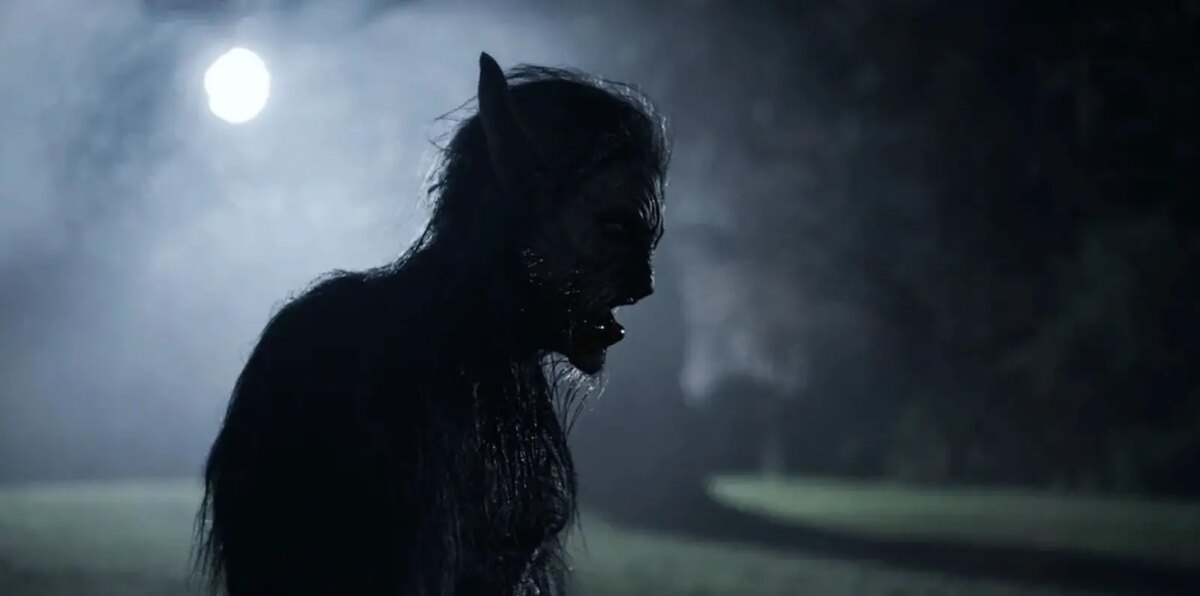
The original title of Scream Of The Wolf was Wolf Manor, and to be honest, that was probably the better name for it. Directed by Dominic Brunt and written by Joel Ferrari and Pete Wild, the comedic horror film wears its inspiration on its sleeve, directly quoting An American Werewolf In London and alluding to several other genre offerings about making a horror movie such as Shadow Of The Vampire and The Editor. Then throw in a bit of The Howling for good measure. So is there anything original here, or are the filmmakers just pilfering from their favorite titles?
Producer Peter (Stephen Mapes) is scrambling about the set of Crimson Manor because the production should have left the location by now. But due to the director’s inability to control the washed-up “star,” Oliver Laurence (James Fleet), shooting at this rural Shropshire farm has proven difficult. But, to drum up interest and keep Oliver on his toes, two press members have been invited to do a story on the vampire movie being shot. It also helps that assistant director Fiona (Thaila Zucchi) is very good and patient with the past-his-prime horror icon.
“…begins taking out crew members and extras left and right.”
Unfortunately, the reporters’ long trek by foot, as the cab will only go so far due to horrifying legends surrounding the land, is a literal dead end… as in a werewolf kills them. Soon enough, this creature makes its way to the production underway and begins taking out crew members and extras left and right. Can Oliver stay sober long enough to figure out how to survive? Is there a way for anyone to outmaneuver the bloodthirsty werewolf and live through the night?
Scream Of The Wolf is not original. If a viewer is familiar with Slaughter Studios or Reel Evil, the story and most of the characterizations won’t be new whatsoever. The characters are all one-note and a little dull. Well, with the exception of Fiona, who steals every scene she’s in. There’s a wonderful scene where she needs Oliver (the next most interesting person) to move from this one spot because the werewolf is not far away. He really doesn’t want to, so she says the AD’s job is “to get the actors where they need to be on set when they need to be there” or something similar. It is a touching line because no matter how obstinate the old man has been, she still has to make sure he’s taken care of. More little moments like this are needed to flesh the others out.
But the flick offers fun in several places. For starters, a lot of the jokes are well-placed and funny. Yes, the humor does send up pompous actors, bad directors, and the like in ways that have been done before. It may be low-hanging fruit, but through comedic timing and a sense of fun, most of the punchlines land.














